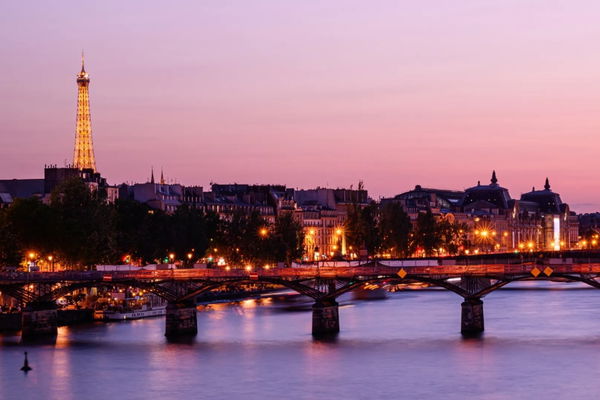

The French capital is shaping up to host the world’s top athletes in a grand style. With the Paris Olympics 2024 only around the corner, the last-minute preparations are in full swing. The Olympic Village is being ornated with the last few additions to its crown to make sure the visiting delegates don’t face any troubles during their stay. Understandably, the operations required to ensure the 12,500+ athletes’ well-being is not an infrastructural joke, and it looks like a few add-on benefits are also creating a special benefit for the Parisians, which were not previously on the table.
The Olympic Village has been erected along the banks of the iconic Seine River, the very site that hosted the 1924 Olympians. While the century in between has provided some extra obvious technological advancements, one sideproduct of the developments has the native citizens beaming.
Swimming in the Seine has been a long-standing tradition, which was banned in 1923. The dictum came with a dual concern over river traffic and the city’s sewage connections being dumped in the canals, which meant health hazards couldn’t be guaranteed not to occur from a dip in the river’s saline waters. However, ahead of the Olympics things are changing, and at breakneck speeds at that! In a recent YouTube upload by AFP News Agency, the Paris’ open-water swimmers’ delight has been brought to light.
ADVERTISEMENT
Article continues below this ad
ADVERTISEMENT
Article continues below this ad
Paris Olympics 2024 ushering new age for followers of an old tradition
As an elderly group of “Ourcq Polaires” is seen feeling out the water of the Seine before getting in, the swimmers smile wide as they once again bask in the collective memory of their forebearers. Over the years, the group regularly meets every week to swim in the cold waters and make the most of the natural conditions. As company director Pierre Fuzeau points out: “You produce lots of hormones like noradrenalin, adrenalin, cortisol, endorphin, and so on. Everything really, it’s like a cocktail in fact“. He went on to joke that it’s like a drug and all group members are addicted to it.
The video went on to note that while the ban is still in place it’s also becoming more flexible with the Olympics and Paralympics only months away. The group members also claimed that the quality of the waters has improved significantly in recent years. This may have been due to the fact that the French government and local administrative bodies have accumulated a sum of 1.4 billion euros to clean up the Seine water.
ADVERTISEMENT
Article continues below this ad
With open water competitions like the triathlon being an integral part of the Olympic Games, a vast underground tank has been constructed to stop the overflowing sewage network from polluting the river in the future. While the grand scheme is already set in motion, it waits to be seen if the iconic European capital manages to uphold its grace to the world’s biggest stars later this year.
Read more: Paris Olympics Update: Eiffel Tower Closure Hits With Just 158 Days Before the Games Begin
ADVERTISEMENT
ADVERTISEMENT
ADVERTISEMENT
ADVERTISEMENT

